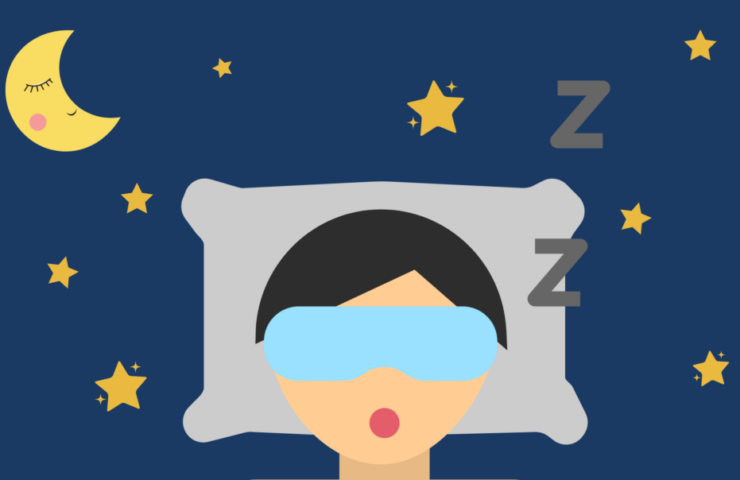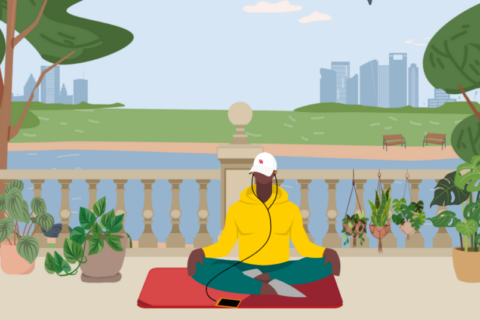It’s the end of spring break – you’re probably coming back from having a nice vacation with your friends or family, getting ready to start classes and using your last bit of energy to finish the semester with good grades. But what about your sleep schedule?
As college students, developing a night routine or maintaining a regular sleep schedule can be quite challenging, especially after returning from a break and staying up late. However, establishing a healthy sleep pattern that suits your needs is just as crucial to your academic success as attending lectures and studying for your classes.
Why Is a Sleep Routine Important?
Nothing compares to having a restful night’s sleep, yet many of us have trouble going to bed at a reasonable hour. By sticking to a regular sleep schedule, you’re helping yourself to get enough resting hours each night and wake up feeling energized.
Improving your sleep schedule goes hand in hand with a good night routine. These two can positively affect many areas of your life, including your physical and mental health, as well as academic performance.
The recommended amount of sleep for most people is at least seven hours. However, this may vary depending on your class schedule and other responsibilities. To create a successful sleep routine, start by figuring out what time you need to wake up and work your way backward to determine a suitable bedtime. The goal is to establish consistency by going to bed and waking up at the same time each day. By doing this, you’ll notice a difference in your energy and mood every morning!
Optimize Your Sleep Environment
A relaxing environment is essential for a good night’s rest. However, creating the ideal bedroom doesn’t need to break the bank. You can implement some cost-efficient ideas to make your room feel comfy and relaxing before going to bed.
- Temperature: Many experts agree that the ideal bedroom temperature for sleeping is 65 degrees Fahrenheit (18.3 degrees Celsius). While this may seem a little cold to some, sleeping with a lower core temperature will help you fall asleep more easily, whereas a higher temperature will keep you alert.
- Light: Maintain your bedroom light levels as low as possible during resting time. The darkness will help your brain produce melatonin, enhancing feelings of sleepiness and relaxation. To accomplish this, you can incorporate blackout curtains, wear an eye mask or switch up your bedroom layout.
Set Your Screen Aside
Most of us spend numerous hours scrolling through TikTok, Instagram and other social media apps. Although this can be entertaining or even relaxing, the blue light produced by our devices can be highly detrimental to our sleep by suppressing the natural production of melatonin.
To prevent this from happening, experts recommend turning off all electronic devices at least one hour before going to bed. If you have trouble falling asleep, you may also try reading your favorite book or practicing some meditation techniques, such as controlled breathing.
Pay Attention to What You Eat and Drink
No one likes going to bed feeling hungry or thirsty. However, eating junk food in the middle of the night will not help you fall asleep any easier. Instead, try to avoid eating for about three hours before going to bed. This simple adjustment will give your body enough time to digest your last meal.
Here are some relaxing drinks that you can try at home:
- Chamomile Tea: Warm chamomile tea has a calming effect that can enhance your sleep quality, making it a simple and efficient method for relaxing before bedtime.
- Sleepy Girl Mocktail: This viral TikTok recipe contains tart cherry juice, magnesium powder, and your choice of flavored soda or sparkling water. Definitely a must-try!
Practice Sleep Meditation and Other Relaxing Techniques
We’ve all experienced staying up late worrying about assignments, group projects, midterms and extracurricular activities. However, incorporating relaxation techniques into your daily routine can help improve your overall sleep quality. Relaxing methods such as controlled breathing and mindfulness target both anxious thoughts and physical discomfort, helping you lower body stress levels.
Lastly, having an off night every now and then is completely normal. However, maintaining a regular sleep pattern is crucial for your physical and emotional well-being.
Hopefully, some of these suggestions will help you get started and achieve your ideal sleep routine. And remember to contact your doctor if you experience persistent difficulties falling asleep.





Recent Comments